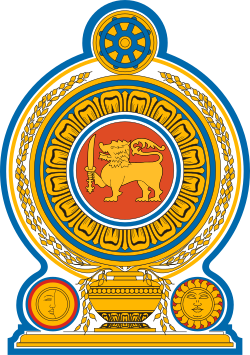This article needs additional citations for verification .(April 2020) |
 | |
| Ministry overview | |
|---|---|
| Formed | 2010 |
| Dissolved | 2015 |
| Superseding Ministry | |
| Jurisdiction | Democratic Socialist Republic of Sri Lanka |
The Ministry of Economic Development was a former ministry of the Government of Sri Lanka, and was a member ministry of the cabinet of Sri Lanka. It was briefly merged with several other ministries and renamed the Ministry of Policy Planning, Economics Affairs, Child, Youth and Cultural Affairs from January 2015 onwards, before being replaced by the Ministry of National Policies and Economic Affairs in August 2015.



